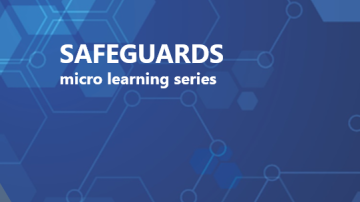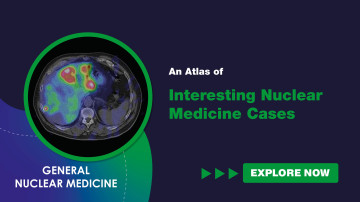Learning and training
The IAEA offers a wide spectrum of learning and training activities, as well as educational resources and capacity-building programmes. These include face-to-face training courses and workshops, fellowship programmes and schools on various nuclear-related topics. The IAEA also offers more than 120 online learning courses and webinars, from beginner to expert level, which can be accessed after registering with the Agency’s Nucleus portal (registration and login accessible when choosing a specific online course).
Webinars
1.3 KMAV for Nuclear Education Providers
The webinar will provide an overview of the Knowledge Management Assist Visit (KMAV) methodology developed by the IAEA to develop a sustainable national nuclear education system and to appraise existing programmes to provide examples of best practice and suggest improvements.The webinar will prov
Webinars
2.2 Building Junior Networks
This webinar will provide an overview of global initiatives undertaken to reach out to the next generation, inform and inspire young minds on Science, Technology, Engineering, Mathematics (STEM) and education in nuclear science and engineering.Presenters will share their experience in introducing
Instructor-led
3-6 March 2025 - National Workshop on Threat Assessment and Design Basis Threat - Yaoundé, Cameroon
The goal of this national workshop is to provide assistance to the Member State in establishing its nuclear security regimes, based on the threat evaluation and risk informed approach, and in implementing practical physical protection measures for a sustainable nuclear security regime.
Webinars
3.3 New Publication - Methodology to Determine Critical Knowledge in Nuclear Organizations
*: Nuclear organizations managing their corporate knowledge assets must make an objective analysis in order to determine the knowledge they must manage over the lifecycle. In this age of knowledge, the competitiveness and the future of nuclear organizations, are becoming more and more dependent
Self-directed
A concise introduction to the Safeguards Legal Framework
Safeguards Microlearning series:States undertake to accept safeguards on the basis of international treaties that make up the legal framework for IAEA safeguards, including the IAEA Statute and safeguards agreements between States and the IAEA.
Self-directed
A short history of IAEA Safeguards
Safeguards Microlearning series:Join us on a journey through time, which was first presented at the IAEA Safeguards Symposium 2022.
Self-directed
Accelerator Mass Spectrometry Radiocarbon Dating for Heritage and Forensic Science
The objective of the course is to provide a comprehensive proficiency on Accelerator Mass spectrometry (AMS) radiocarbon dating technique and its applications in the field of Heritage and Forensic Sciences.
Self-directed
Action Plan Against Quarantine Fruit Fly Species of the Genus Batrocera spp.
The course is based on the harmonized procedures manual for the eradication of outbreaks of invasive fruit fly species of the Genus Batrocera.
Self-directed
Actions to Protect the Public in an Emergency due to Severe Conditions at a Light Water Reactor
The training course consists of modules covering an overview of emergencies at nuclear power plants (NPPs), environmental characteristics of a release and possible health effects relevant to an emergency at an NPP, plans and procedures for emergency response, public protective actions, and commun
Self-directed
An Atlas of Interesting Nuclear Medicine Cases
The E-Learning in Nuclear Medicine was developed by the Asian School of Nuclear Medicine (ASNM) through the TC regional project, RAS/0/047 to respond to the need for continuing education of physicians, technologists and other allied professionals working in Nuclear Medicine. ASNM is the collabora
Self-directed
Analytical Methods to Detect and Control Organic Contaminants in food
This e-Learning course covers the topics such as Overview of Organic Contaminants in food, Overview of Sample preparation options, Overview of Analytical Instrumentation, Planning, Method development and validation, QAQC, PT, Quantitative, Reporting.Duration: ~40 Hours | Interactivity: Self-direc
- 1 of 43
- next ›








